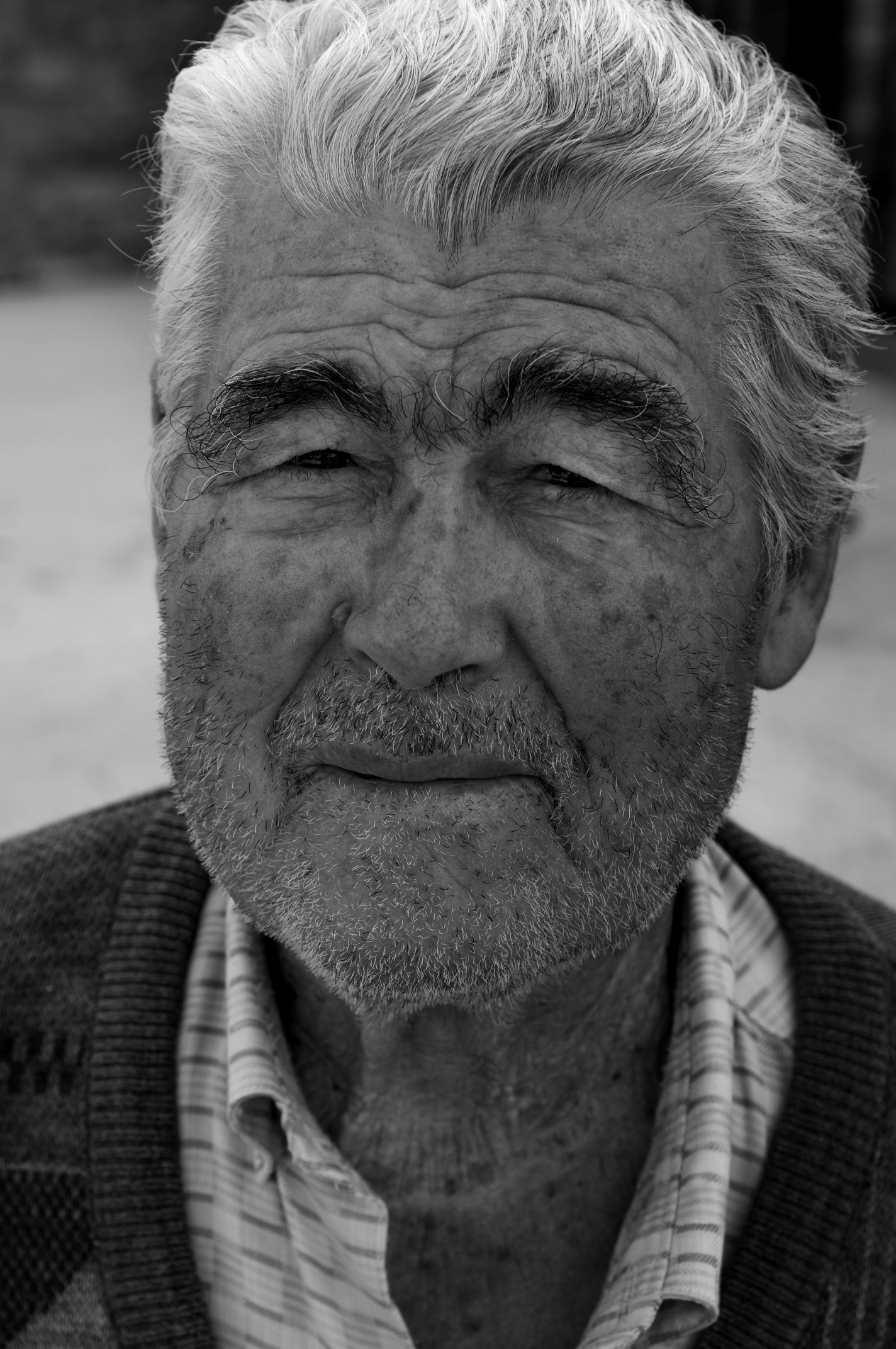Mairena, Alpujarras, Spain

I know it's only my imagination but the faces of those old people who have spent their lives on farms or close to the land seem to have a better class of wrinkle.
It's hard to know exactly what it is, but the old folks round here seem to contain a dignity and expressiveness that suits the harshness of the climate and the general difficulty-of-being that many of them will have endured under the dictatorship and the anxieties that were their lot during the years of transition.
The life of farmers everywhere can be cruel, but nowhere more so for the humble tenant farmer of the alpujarra, who not only was often unable to own his own land, but had meanwhile to pay a set of mediaeval-like tithes and tributes to landowner and Church, usually irrespective of the yield. These days we all reach automatically for our cameras when we see the ploughman set to with a pair of mules, and this is a good thing, for not only is it a sight to treasure for its rarity and for the fact that such a vulnerable technique ties us closely to a very recent bit of history, but also, more simply, it'sjust a wonderfully beautiful thing to see such skill and power harnessed to tradition.
Let's face it, what more picturesque and bucolic scenario could you hope to find than an ancient olive terrace being turned over by a chap with straw hat, fifteenth century plough and two mules with preposterously cutesy ears? Thing is though, for all its pastoral delights, it's hard work, stunningly so, and subject to all kinds of uncertainty, and it's this, I think, more than anything else, that leads the locals to carry about them their lovely, eloquent, corrugated features.

Take Ana. No longer built for speed, shall we say, she has a strange geriatric grace that to this day lets you peek into her past with an echo of the pretty girl she must once have been. Beyond her lined and careworn face her pale blue eyes still sparkle with a fierce intelligence, and when she smiles it's a genuine lighter-upper-of-a room affair that you just have to reciprocate. But, oh, the tales of hardship and travail she tells can cast a cloud about the brightest day, and I suspect they're probably true, for as she says, she's neither a misery guts nor has anything to gain by exaggerating the scale of her sufrimiento.
For the sad truth is, people here did suffer fairly brutally.
Let's take but one story as illustration: shortly after the civil war in the early 1940's a new road was to be built to make the crossing of the Sierra Nevada more accessible, and many of the young men of our villages who were not fascists were forced to work for free as labourers during its construction. Forced at gunpoint, that is, and those who refused were maimed, or shot, pour encourager les autres. From Mairena to the point where most of the work was to be carried out, however, is a good 6 hour walk, so the men were compelled to sleep in a cave close to the 2000 metre pass at La Ragua. Of course they required supplies and food, and this was brought up by mule train from the villages beneath. But imagine this: Ana's husband, then aged 6, whose father was amongst the labourers, was literally tied to the leading donkey and forced to act as the eyes of a blind man who actually knew the way as he led them up the mountains, and did this, he told me, for several months….
So the pensioners with us today have every right to be proud of their weather and time -beaten faces, for they are true survivors, and equally have every right to the respect that society largely affords them, at least around these parts. Support too: despite the recession the regional government has continued the policy of training and employing young people whose job it is to visit and care for older members of the community in their own homes. It's an ambitious and no doubt costly exercise, but comes in for very little criticism, and in many ways reflects much of what Andalusians think of as dignidad: dignity for the carer who maintains a well –respected job, and dignity for the frail and elderly parishioner who need not succumb to the comforts of an old folks' home. I for one often find myself strangely moved at the sight of qualified and articulate young people as they slow their gait to accompany the shuffle of their charges about the village, cheerfully exchanging smiles as they try to meet the challenges of moving around streets which few would call wheelchair-friendly.
All told, there are worse places to become an old codger.
I think I'll put my name down now…………..






